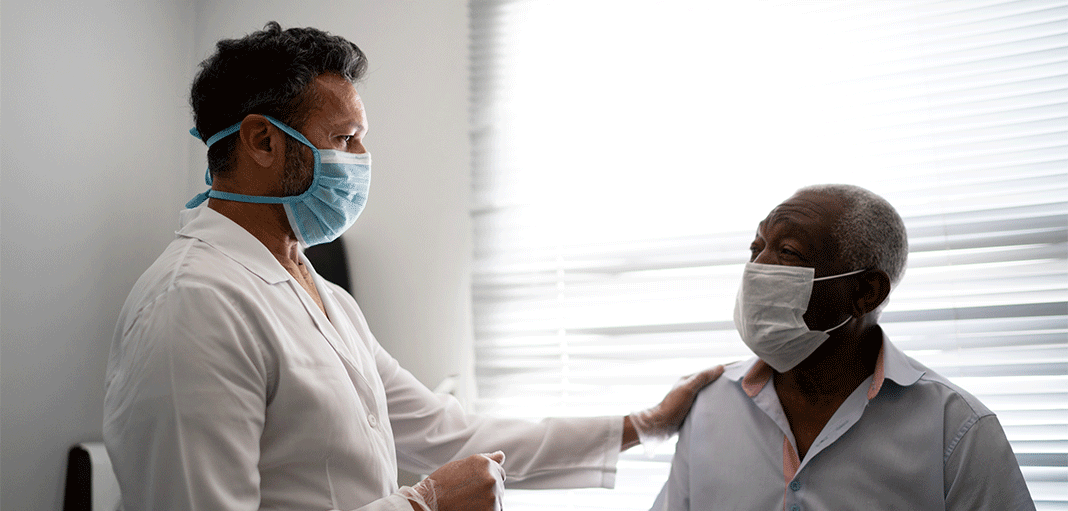Enroll with us in a few easy steps
We know that you may have questions or concerns about coronavirus (COVID-19) as you live with idiopathic pulmonary fibrosis (IPF). To support your safety and health, we’ve provided information to help you stay updated. Please visit CDC.gov for the latest news.
What is COVID-19?
The Centers for Disease Control and Prevention (CDC) and World Health Organization (WHO) are actively monitoring the novel (never seen before) coronavirus strain. This virus causes a respiratory infection called novel coronavirus or COVID-19.
What are the symptoms?
People with COVID-19 report a wide range of symptoms from mild signs to severe illness. These symptoms may appear two to 14 days after being exposed to the virus:
- Fever or chills
- Cough
- Shortness of breath or difficulty breathing
- Fatigue
- Muscle pain or body aches
- Headache
- New loss of taste or smell
- Sore throat
- Congestion or runny nose
- Nausea or vomiting
- Diarrhea
- Repeated shaking with chills
In more severe cases, infection can cause pneumonia, severe acute respiratory syndrome or kidney failure.
What is different about COVID-19 if you have IPF?
Having IPF doesn’t mean you’re at a higher risk for getting COVID-19. But if you have IPF and you get the virus, you’re more likely to show symptoms and to become seriously ill.
How do you protect yourself from getting COVID-19?
The best way to protect yourself is to avoid contact with the virus. To stay as healthy as you can, follow CDC guidance. The CDC recommends that you:
- Wash your hands often with soap and water for at least 20 seconds
- If soap and water are not readily available, use a hand sanitizer that has at least 60 percent alcohol
- Avoid touching your eyes, nose or mouth
- Wear a face mask that covers your nose and mouth even when you are outside; insist those around you do the same
- Stay at least 6 feet (about 2 arms' length) from others at all times; do not hug or shake hands with people
- Stay away from crowded, indoor places
- Stay home if you are sick; avoid close contact with people who are sick
- Cover your cough or sneeze with a tissue. Throw the tissue in the trash and wash your hands
- Talk to your doctor right away if you notice any symptoms
- Check with your doctor before going to the hospital or urgent care. If you need to go, ask your doctor to let the hospital know you’re on your way
- Avoid traveling and using public transportation. If you need to travel, bring your mask, hand sanitizer, disinfectant wipes and a bottle of water
In addition, keep your home a safe zone:
- Limit the number of people in your home
- Take the temperature of everyone who lives in the home every morning and evening
- Choose someone who can run errands. This person should:
- Take off outer clothing before coming in
- Wash hands and face or take a shower, as soon as they come in
- Clean and disinfect frequently touched surfaces every day
This information is not a substitute for medical advice or treatment. Talk to your doctor or health care provider about your medical condition and prior to starting any new treatment. CVS Specialty assumes no liability whatsoever for the information provided or for any diagnosis or treatment made as a result, nor is it responsible for the reliability of the content.
CVS Specialty does not operate all the websites/organizations listed here, nor is it responsible for the availability or reliability of their content. These listings do not imply or constitute an endorsement, sponsorship, or recommendation by CVS Specialty.
Your privacy is important to us. Our employees are trained regarding the appropriate way to handle your private health information.

